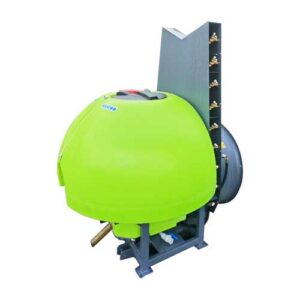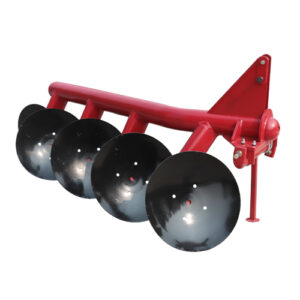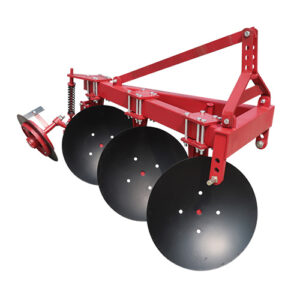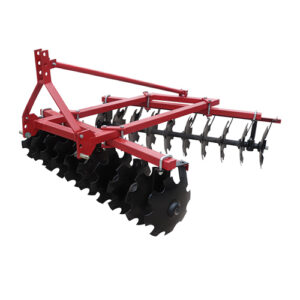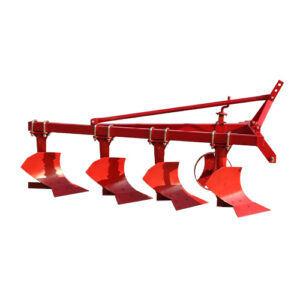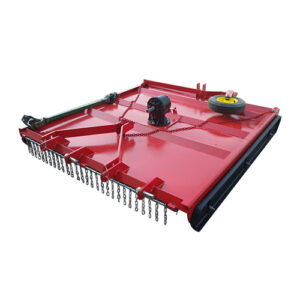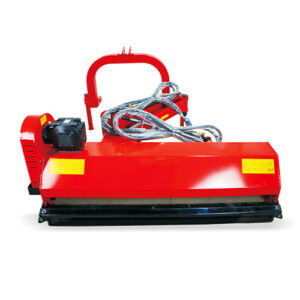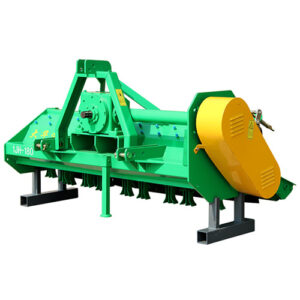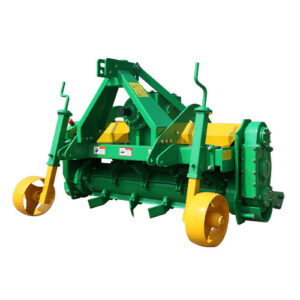Introduction
In modern agriculture, maximizing crop yield is essential for meeting the increasing food demand and ensuring the profitability of farming operations. Agricultural spray equipment plays a crucial role in achieving these goals by providing efficient and precise application of fertilizers, pesticides, herbicides, and other essential inputs. This comprehensive guide explores how agricultural spray equipment can enhance crop yield, the different types of spray equipment available, their benefits, and key considerations for selecting the right equipment for your farm. Whether you are a seasoned farmer or new to agriculture, this guide will provide valuable insights into the world of agricultural spray equipment.
The Importance of Agricultural Spray Equipment
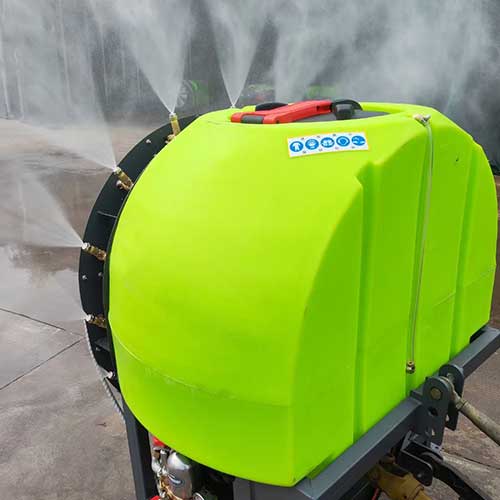
Enhancing Efficiency and Precision
Agricultural spray equipment allows for the efficient and precise application of chemicals and nutrients, ensuring that crops receive the right amount of input at the right time. This precision reduces waste, minimizes environmental impact, and ensures that crops can reach their full potential.
Improving Crop Health
By providing uniform coverage of pesticides and herbicides, spray equipment helps control pests and weeds effectively. This leads to healthier crops with fewer diseases and infestations, ultimately enhancing crop yield.
Reducing Labor and Time
Modern agricultural spray equipment can cover large areas quickly and accurately, significantly reducing the amount of manual labor and time required for crop management. This efficiency allows farmers to focus on other essential tasks and improve overall farm productivity.
Types of Agricultural Spray Equipment
Boom Sprayers
Boom sprayers are one of the most common types of agricultural spray equipment. They consist of a long boom with multiple nozzles that evenly distribute chemicals over a wide area. Boom sprayers are ideal for large fields and provide excellent coverage and precision.
Air Blast Sprayers
Air blast sprayers use a powerful fan to create a high-velocity air stream that carries the spray droplets to the target area. They are commonly used in orchards and vineyards where the dense foliage requires thorough coverage.
Handheld Sprayers
Handheld sprayers are portable and easy to use, making them suitable for small farms, gardens, and spot treatments. They are versatile and can be used for applying various chemicals, including pesticides, herbicides, and fertilizers.
Foggers
Foggers produce a fine mist that can penetrate dense foliage and cover large areas. They are often used in greenhouses and for pest control in confined spaces. Foggers are effective for delivering a uniform distribution of chemicals.
Drones
Agricultural drones are becoming increasingly popular due to their ability to cover large areas quickly and precisely. Drones equipped with spray systems can be programmed to follow specific flight paths, ensuring even application and reducing the risk of overlapping or missed areas.
Benefits of Using Agricultural Spray Equipment
Increased Crop Yield
The primary benefit of using agricultural spray equipment is the significant increase in crop yield. By ensuring that crops receive the necessary nutrients and protection from pests and diseases, spray equipment helps maximize growth and productivity.
Cost Savings
Efficient use of chemicals and fertilizers reduces waste and lowers input costs. Additionally, the reduced need for manual labor and the ability to cover large areas quickly result in further cost savings for farmers.
Environmental Protection
Modern spray equipment is designed to minimize the environmental impact of chemical application. Precision spraying reduces runoff and leaching, protecting water sources and surrounding ecosystems from contamination.
Improved Crop Quality
Consistent and accurate application of inputs leads to healthier, more uniform crops. This results in higher-quality produce that meets market standards and fetches better prices.
Time Efficiency
Agricultural spray equipment allows farmers to complete spraying tasks quickly and efficiently. This time efficiency enables better management of other farm operations and improves overall productivity.
Comparison of Agricultural Spray Equipment
| Type | Coverage Area | Precision | Ease of Use | Best For |
|---|---|---|---|---|
| Boom Sprayers | Large Fields | High | Moderate | Large-scale farming |
| Air Blast Sprayers | Medium to Large | High | Moderate | Orchards, Vineyards |
| Handheld Sprayers | Small Areas | Moderate | Easy | Gardens, Spot Treatments |
| Foggers | Medium Areas | High | Moderate | Greenhouses, Pest Control |
| Drones | Large Fields | Very High | Complex | Precision Farming |
How to Choose the Right Agricultural Spray Equipment
Assess Your Farm’s Needs
Consider the size of your farm, the types of crops you grow, and the specific challenges you face, such as pest infestations or nutrient deficiencies. This assessment will help you determine the type of spray equipment that best suits your needs.
Evaluate Coverage Area
Select equipment that can efficiently cover the area you need to treat. For large fields, boom sprayers or drones may be the best options, while handheld sprayers are more suitable for small areas or spot treatments.
Consider Precision and Accuracy
Precision is crucial for effective spraying. Choose equipment with adjustable nozzles, GPS guidance, or advanced technology that ensures accurate application and minimizes waste.
Budget Considerations
Determine your budget and compare the cost of different types of spray equipment. While more advanced equipment like drones may have higher upfront costs, the long-term benefits and efficiency gains can justify the investment.
Ease of Use and Maintenance
Select equipment that is easy to operate and maintain. Consider factors such as user-friendly controls, availability of spare parts, and the manufacturer’s reputation for reliability and customer support.
Best Practices for Using Agricultural Spray Equipment
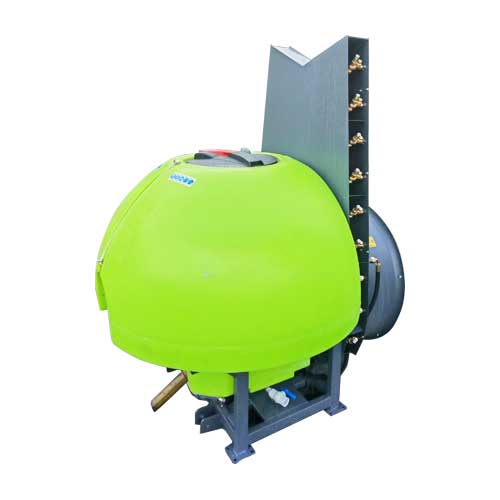
Calibrate Your Equipment
Regular calibration ensures that your spray equipment is applying the correct amount of chemicals. This prevents over- or under-application and ensures optimal crop protection and growth.
Follow Safety Guidelines
Always follow the manufacturer’s safety guidelines and wear appropriate protective gear when using spray equipment. This protects you from exposure to potentially harmful chemicals.
Regular Maintenance
Regular maintenance of your spray equipment, such as cleaning nozzles and checking for leaks, ensures consistent performance and extends the lifespan of the equipment.
Monitor Weather Conditions
Weather conditions can affect the effectiveness of spraying. Avoid spraying on windy days to prevent drift and on rainy days to avoid runoff. Early morning or late evening is often the best time to spray.
Keep Records
Maintain detailed records of your spraying activities, including the types of chemicals used, application rates, and weather conditions. This helps track the effectiveness of your treatments and make informed decisions for future applications.
Conclusion
Agricultural spray equipment is a vital tool for enhancing crop yield and ensuring the success of farming operations. By providing efficient and precise application of inputs, spray equipment helps protect crops, improve health, and maximize productivity. Understanding the different types of spray equipment, their benefits, and best practices for use will enable you to make informed decisions and achieve the best results for your farm.
FAQ
What is the best type of agricultural spray equipment for large farms?
For large farms, boom sprayers and drones are the most efficient options. Boom sprayers provide excellent coverage and precision, while drones offer advanced technology for precision farming.
How often should I calibrate my agricultural spray equipment?
Calibration should be done at the beginning of each season and periodically throughout the season, especially if you change the type of chemicals or application rates.
Can I use the same spray equipment for different chemicals?
Yes, but it’s essential to clean the equipment thoroughly between uses to prevent cross-contamination and ensure the effectiveness of each chemical application.
What are the safety precautions for using agricultural spray equipment?
Always wear protective gear, such as gloves, goggles, and masks. Follow the manufacturer’s safety guidelines and avoid spraying in windy or rainy conditions to prevent drift and runoff.
How can I reduce the environmental impact of using agricultural spray equipment?
Use precision equipment to minimize over-application and reduce runoff. Choose environmentally friendly chemicals and follow best practices for application and maintenance to protect surrounding ecosystems.
Are drones worth the investment for agricultural spraying?
Drones offer high precision and efficiency, making them a valuable investment for large farms and precision farming. While they have a higher upfront cost, the long-term benefits can outweigh the initial expense.


